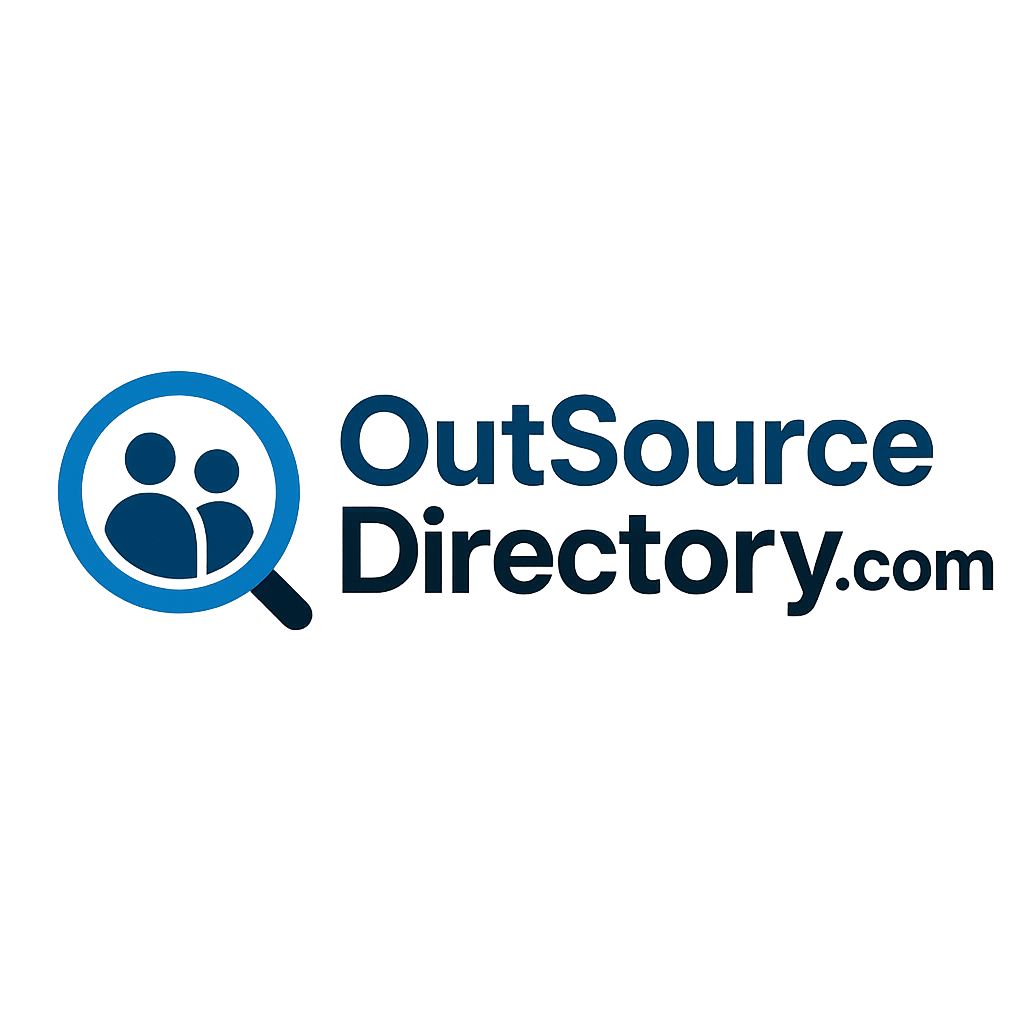Hiring offshore can save U.S. companies up to 70% on recruitment and labor costs while accessing global talent pools. Offshore recruitment agencies help businesses hire faster, reduce expenses, and adapt to changing needs with ease. Here's a quick look at the benefits:
- Lower Costs: Reduce hiring expenses by up to 70% compared to U.S.-based recruitment.
- Access Global Talent: Tap into skilled professionals worldwide for technical and non-technical roles.
- Flexibility: Scale teams quickly for seasonal or project-based demands.
- 24/7 Recruitment: Leverage time zone differences for continuous hiring efforts.
- Market Expertise: Navigate local laws, taxes, and cultural norms with expert guidance.
- Modern Tools: Use AI and automation to streamline hiring processes.
- Global Presence: Expand internationally without setting up local entities.
Cost Comparison Table:
| Aspect | U.S. Hiring | Offshore Hiring |
|---|---|---|
| Average Cost Per Hire | $4,700 | 50-70% lower |
| Software Developer Salary | $90K-$120K/year | $20K-$40K/year |
| Customer Service Rep Salary | $35K-$45K/year | $5K-$10K/year |
| Onboarding Costs | $954/employee | Significantly lower |
Offshore recruitment simplifies hiring, saves money, and connects businesses with top global talent. Ready to learn more? Let’s dive in.
The Power of Global Staffing: Hiring Strategies for Success | The Partners Podcast with Raz Malas
1. Lower Hiring and Labor Costs
Offshore recruitment significantly reduces hiring and operational expenses. For context, U.S. companies spend an average of $4,700 per hire [4], but offshore services can cut these costs by as much as 70% [5].
Here's a quick look at the savings:
| Cost Factor | Traditional U.S. Hiring | Offshore Recruitment |
|---|---|---|
| Recruitment Process | $4,700 per hire | 50-70% lower costs |
| Salary & Benefits | Full U.S. market rates | 60% lower on average |
| Office Space & Equipment | $150,000+ annually | Minimal to none |
| Employee Turnover | 50-200% of annual salary | Significantly reduced |
These savings aren't just theoretical - they're happening in real life. For instance, a tech startup in San Francisco managed to save $500,000 annually by hiring offshore. This allowed them to employ five customer service representatives for the same cost as two U.S.-based agents [5].
"Offshoring helped us scale faster while cutting our hiring budget by 60%!" – CEO, Tech Startup [5]
Offshore recruitment also eliminates many traditional hiring expenses, including:
- Job board advertising fees
- Office space and utility costs
- Equipment and workstation setup
- Health insurance and benefits packages
- Training and onboarding resources
For example, companies outsourcing accounting tasks report savings of up to 50% on finance-related costs [5]. Additionally, eliminating the need for physical office space can make a big difference - one U.S. company saved $150,000 annually by transitioning to a fully remote offshore team [5].
2. Access to Technical Talent Pools
Offshore recruitment agencies provide a gateway to technical talent from around the globe. They make it possible to tap into specialized expertise, especially from regions known for their strong technical skills, while keeping costs manageable.
The range of technical roles available through these agencies is impressive:
| Technical Role | Common Expertise Areas |
|---|---|
| Software Development | C#, PHP, Java, Node.js, Python |
| Mobile Development | Android, iOS (Swift) |
| Frontend Development | React, Angular, JavaScript |
| UX/UI Design | User Experience, Interface Design |
| Product Management | Agile, Scrum, Product Strategy |
When it comes to costs, mid-level technical professionals typically charge around $3,000 per month (roughly $19 per hour), while senior-level experts average $4,000 monthly (about $25 per hour). Compare this to traditional rates - $400 per day or approximately $105,000 per year - and the savings are striking [6]. These competitive rates make accessing global technical talent not just feasible but also highly economical.
Manila is a standout example of how offshore recruitment can connect businesses with a deep pool of skilled technical professionals [6]. Candidates are rigorously pre-screened with technical assessments to ensure they meet high standards.
"Manila has a large talent pool of qualified graduates - we handpick the best available. Top talent and competitive prices." - Offshorly [6]
Success stories highlight the transformative potential of global technical talent:
"Full Scale's development team was pivotal in elevating our facility management software... A true game-changer for us." - Luke Wade, Facility Ally
"With Full Scale's developers, we transformed the commercial real estate landscape... driving value for our customers." - Jeff Weiner, Real Quantum
To make the most of these talent pools, companies should:
- Clearly define their technical needs
- Assess the agency's technical capabilities
- Be actively involved in the selection process
- Evaluate options for hiring individuals or building entire teams
3. Quick Team Size Adjustment
Offshore recruitment agencies are masters at helping businesses quickly adjust their workforce size to match changing needs. Whether you're dealing with seasonal spikes, project-specific demands, or a rapid growth phase, this adaptability can make all the difference. It’s not just about saving costs - it’s about aligning your team size with your business needs at the right time.
Take Flexscale, for example. They can recruit international talent in just 14 days [8], allowing businesses to react swiftly to market changes. Their staffing options are designed for flexibility, offering access to pre-vetted talent pools, project-based contracts, and even month-to-month agreements.
A great example of this in action is Pattern Brands. In 2024, they expanded their team by hiring 19 professionals across multiple departments through Scale Army. The result? A staggering 67% cost savings compared to traditional U.S. hiring methods [7].
"We were blown away. In less than a week Scale Army had us talking to native English-speaking candidates via video interviews. They didn't just throw random people our way, they were specifically tailored to our needs. We needed someone quick and they delivered."
- Berlin Byers, CEO, Wildcrafted Beauty [7]
Scale Army offers full-time positions starting at $1,499 per month [7], while Flexscale provides Operations & Finance roles ranging from $1,500 to $1,750 per month per person [8]. For businesses with short-term needs, Flexscale’s Starter Plan is available at $8 per person per hour [8]. These services go beyond recruitment - they also handle onboarding, payroll, and compliance, making the process seamless.
The demand for flexible workforce solutions is on the rise. In fact, on-demand hiring now accounts for 25% of the offshore recruitment industry [3].
"If there's one word I can use to describe our partnership with Penbrothers it is efficiency. Recruiting talent and managing payroll are done really well, which allows me to focus more time on my business."
- Michiel Waaijer, Founder, Rock Solid Digital [9]
To make the most of this quick-scaling capability, businesses should:
- Set clear triggers and thresholds for scaling up or down.
- Communicate growth plans effectively with all stakeholders.
- Develop standardized processes for onboarding new team members.
- Regularly track performance metrics to ensure quality and efficiency.
This flexible approach to workforce management gives businesses an edge in today’s fast-moving market. It’s a way to stay agile without compromising on quality or burning through resources.
4. Round-the-Clock Recruitment
One of the biggest perks of working with offshore recruitment agencies is their ability to operate nonstop, thanks to time zone differences. When your local office wraps up for the day, teams in another part of the world are just getting started. This continuous workflow ensures that recruitment efforts never hit pause - a game-changer in today’s fast-paced business world. Real-world examples show how this approach can deliver incredible results.
Take Global Healthcare Resource, for instance. Their teams in the U.S., India, and the Philippines work seamlessly across a 9+ hour time difference. While their U.S. clients are asleep, international teams are busy tackling recruitment tasks. By the time business hours begin in the U.S., the work is already done and ready to go [10].
"Healthcare organizations new to international business models may find it intimidating to operate their revenue cycle across the world. However, our clients understand distance equals quicker turnaround times."
– Claire Calderbank, Global Healthcare Resource [10]
This 24/7 recruitment model comes with some powerful advantages:
- Faster Response Times: Candidates receive feedback quickly, no matter the time zone.
- Shorter Hiring Timelines: Continuous operations help eliminate delays between different hiring stages.
- Broader Reach: Businesses can connect with candidates worldwide without worrying about scheduling conflicts.
To make the most of this approach, it’s crucial to partner with agencies that have well-coordinated global teams and efficient communication systems. Smooth shift transitions are key to keeping everything running like clockwork.
"When you choose an offshore recruitment company, you shouldn't have to worry about your timings as a reputable recruitment company has staff worldwide, and the workforce can work in different time zones."
– Divij Chadha, Collar Search [2]
Up next, we’ll dive into how understanding market-specific nuances can elevate the offshore recruitment process.
sbb-itb-63f7737
5. Market-Specific Hiring Knowledge
Understanding local hiring practices is the backbone of successful global recruitment. Offshore agencies bring a deep knowledge of regional employment laws, cultural expectations, and regulatory frameworks - key elements for navigating the complexities of hiring across borders. This expertise helps businesses tackle legal, financial, and cultural challenges with confidence.
Consider this: 75% of small and medium-sized businesses (SMBs) plan to expand internationally, and 54% of talent acquisition professionals are already hiring globally [14]. These numbers highlight the growing need for local insights. Cultural awareness plays a pivotal role in recruitment. For instance, while American candidates often emphasize individual accomplishments, this approach might come across as boastful in countries like China or Finland [13]. Similarly, Eastern European countries tend to prefer formal communication, whereas Dutch companies often embrace a more relaxed tone [12].
"There's no replacement for understanding cultural differences between countries. This is necessary in order to efficiently engage and communicate with top talent, regardless of location." - Oyster Team [12]
Offshore agencies are well-versed in local labor laws, regional tax incentives, and cultural subtleties, offering a comprehensive approach to global hiring [11][2]. Their expertise includes:
- Legal Compliance: These agencies ensure adherence to local labor laws, covering employee privacy, notice periods, non-compete clauses, and union regulations [11].
- Tax Benefits: They identify and leverage regional tax incentives and financial benefits in developing markets to maximize cost savings [2].
- Cultural Navigation: By tailoring recruitment processes to local norms, they create job descriptions and communication strategies that resonate with the target audience [15].
The results? Partnering with offshore agencies can lead to up to 70% cost savings while ensuring full compliance with local regulations [2]. Beyond cost efficiency and scalability, understanding these market-specific nuances enhances the effectiveness of your global hiring strategy.
Once equipped with local expertise, modern recruitment tools can take your offshore hiring process to the next level.
6. Modern Recruitment Tools
Efficiency and scalability are critical in the offshore recruitment model, and modern tools have become indispensable in achieving these goals. Offshore agencies report faster hiring times and increased productivity thanks to these advanced technologies.
In 2024, Entrata leveraged Lever software to secure a 91% offer acceptance rate, hiring nearly 700 employees in just 180 days. Similarly, Verafin boosted hiring efficiency by 40% while saving over 80 hours of manual work during the process [17].
Here’s how some of these cutting-edge tools contribute to recruitment success:
| Tool Type | Primary Functions | Key Benefits |
|---|---|---|
| AI Recruitment Partners | Automated sourcing | 24/7 operation, faster hiring |
| Applicant Tracking Systems (ATS) | Candidate management | Simplified workflows |
| Video Conferencing | Remote interviews | Global reach, reduced costs |
| Communication Platforms | Team collaboration | Real-time coordination |
For example, Mitek’s adoption of modern recruitment software saved the company 32.5 hours annually while achieving an impressive 96% offer acceptance rate [17].
"AI is revolutionizing the way Mismo recruits offshore talent. By embracing these top AI recruiting tools, we streamline our hiring process and ensure we bring in the best global talent. The future of recruitment is here, and it's powered by AI." - Mismo [16]
Social platforms have also become essential to recruitment strategies, with 96% of teams now incorporating them into their hiring processes [18]. Talent Growth Partners experienced tangible benefits after introducing Slack for their offshore team in the Philippines. The platform reduced communication delays by 20% and increased successful placements by 15% within six months [19].
One standout development is the integration of ATS with video conferencing tools. This combination ensures a seamless transition from candidate screening to interviews, a feature particularly valuable for managing cross-timezone operations. Such integrations are instrumental in building a robust global recruitment presence.
These tools have transformed offshore recruitment into a more sophisticated, data-driven process. With AI and automation handling routine tasks around the clock, recruiters can shift their focus to strategic talent acquisition while maintaining high-quality standards.
Next, let’s dive into how these technological advancements contribute to strengthening a company’s global footprint.
7. Better Company Presence Abroad
Expanding a business internationally isn’t just about crossing borders - it’s about navigating the complexities of local markets and regulations. Offshore recruitment agencies play a key role here, acting as partners who simplify the process while ensuring compliance.
Take OysterHR, for example. With a network spanning over 180 countries, they enable businesses to operate seamlessly across multiple regions without the need to establish separate legal entities [20].
The benefits of this approach aren’t just theoretical - they have a direct impact on how businesses operate. Here’s a closer look:
| Aspect | Benefits | Impact |
|---|---|---|
| Legal Compliance | Automated payroll in 28+ countries | Minimizes legal risks |
| Local Expertise | Market-specific knowledge | Improves talent retention |
| Cost Efficiency | Up to 70% cost savings | Boosts market competitiveness |
| Global Reach | Access to 54% of global support teams | Strengthens customer connections |
Companies like Lokalise provide a real-world example of how offshore recruitment agencies can transform international growth strategies. James Corfield, Director of Talent Acquisition at Lokalise, shared:
"Oyster takes away the stress and complexity of setting up company entities, figuring out tax regulations and employment laws, and sourcing benefits providers when we operate in new territories" [20].
This streamlined approach allows businesses to channel their resources into expanding markets and developing talent, rather than getting bogged down by administrative hurdles. For small and medium enterprises, in particular, this means accessing expert recruitment solutions without the high costs of building in-house teams [2].
By blending local expertise with global strategies, these agencies lay the groundwork for sustainable international growth. They handle compliance, benefits, and cultural integration, freeing companies to focus on their core operations and scaling quickly.
Up next, we’ll dive into how these efficiencies stack up against traditional U.S. hiring models.
Cost Comparison: U.S. vs Offshore Hiring
Hiring costs in the U.S. can be steep. On average, companies spend about $4,700 per hire when using traditional recruitment methods. Offshore hiring, however, can reduce these costs significantly - by as much as 50% in terms of base salaries[4].
Take a look at the salary differences for key roles across regions:
| Position | U.S. Salary (Annual) | Offshore Salary (Annual) | Estimated Savings |
|---|---|---|---|
| Software Developer | $90,000 - $120,000 | $20,000 - $40,000 (Eastern Europe) | 55-70% |
| Customer Service Rep | $35,000 - $45,000 | $5,000 - $10,000 (Philippines) | 70-85% |
But it’s not just salaries where savings occur. Operational costs also play a big role. According to McKinsey & Company:
"Offshore hiring isn't just about cost savings. It's about strategic workforce planning, leveraging diverse talent pools, and creating resilient business models."[22]
Hourly Rates by Region
Hourly rates vary widely depending on the region, reflecting local market dynamics:
- Eastern Europe (Poland, Ukraine): $44/hour average
- Latin America (Colombia, Mexico): $40/hour average
- Asia (India, Philippines): $35/hour average
- Africa (Egypt, Nigeria): $32.50/hour average[23]
These differences highlight the cost advantages of offshore recruitment, especially for businesses looking to scale efficiently.
Additional Costs to Consider
While offshore hiring offers significant savings, there are some associated costs to keep in mind:
- Recruitment fees: Typically 8% to 15% of the annual salary[22]
- Local entity setup: Ranges from $5,000 to $20,000[22]
- Training costs: In the U.S., this averages $954 per employee[1]
Living Cost Comparisons
Living expenses are another factor that tilts the scale in favor of offshore hiring. For example, the cost of living in the U.S. is 80% higher than in India. Monthly living expenses average $2,112 in the U.S., compared to just $416 in India[21].
Regional Cost Rankings
Here’s how different regions stack up in terms of cost-effectiveness:
- India: Offers 60-70% savings compared to U.S. hiring costs[21].
- Egypt: 20-30% more cost-effective than Eastern European options[23].
- Ukraine and Poland: Provide 40-60% savings on development costs[23].
With over 5.8 million developers in India alone[23], businesses can achieve 40-60% reductions in overall hiring costs compared to onshore recruitment[21]. These savings, combined with access to a global talent pool, make offshore hiring a compelling option for companies aiming to grow efficiently.
Conclusion
Offshore recruitment agencies are reshaping how businesses hire, offering streamlined access to global talent while keeping costs in check. By tapping into these agencies, companies can reduce expenses significantly without compromising on recruitment quality.
To make the most of offshore recruitment, consider these key steps:
- Choose the Right Partner: Look for agencies with a solid track record, expertise in your industry, and a deep understanding of your target markets. Compatibility with your company’s values and work culture is just as important.
- Establish Clear Communication: Set up reliable communication channels from the start. Regular progress meetings and structured reporting systems can help monitor critical metrics like time-to-fill and cost-per-hire.
- Prioritize Compliance and Security: Ensure the agency you work with adheres to stringent data security measures and stays updated on international labor laws. This safeguards your business while ensuring compliance across borders.
As one expert aptly put it:
"The top RPO providers will be aware of these challenges and have systems to tackle them." - Human+Human [24]
To further optimize your offshore recruitment strategy, keep these additional tips in mind:
- Understand local market conditions, including salary benchmarks.
- Explore a variety of sourcing channels, not just the major platforms.
- Adapt to different communication styles and cultural norms.
- Keep detailed records of your hiring processes and results.
FAQs
Offshore recruitment agencies play a key role in keeping businesses compliant with labor laws across different countries. They stay informed about regulations such as employee classification, minimum wage standards, benefits, working hours, and termination policies. To handle these often-complex rules, they frequently work with legal professionals or international hiring experts.
By relying on their knowledge and partnerships, these agencies help companies steer clear of legal troubles. They ensure global hiring practices meet local labor laws and align with industry norms, allowing businesses to concentrate on growth without worrying about compliance issues.
Integrating offshore teams often comes with hurdles such as differences in work culture, time zone challenges, and communication barriers. These can sometimes result in misunderstandings, project delays, or unmet expectations if not handled with care.
To address these issues, businesses can take several practical steps:
- Offer cultural training sessions to promote mutual understanding and teamwork.
- Implement reliable communication tools and ensure all critical processes are well-documented.
- Assign a dedicated liaison or team lead to act as a bridge between onshore and offshore teams.
- Hold regular check-in meetings to keep everyone aligned and informed.
When companies invest in clear communication and create a supportive, collaborative environment, they can successfully integrate offshore teams and keep projects running smoothly.
Managing communication with offshore teams across different time zones takes careful planning and the right tools. A good starting point is to schedule regular meetings during overlapping working hours, ensuring everyone can participate without disrupting their day. For tasks that don’t need immediate input, focus on asynchronous communication using tools like email or project management platforms.
Leverage scheduling tools, such as time zone converters, to efficiently plan meetings and be considerate of your team members' local time when sending messages or setting up calls. Promoting open communication and flexibility is key to building trust and keeping productivity on track. By combining clear communication strategies with helpful technology, you can create smooth and effective collaboration across time zones.


 Hire Home Health Schedulers
Hire Home Health Schedulers

 Hey Foster
Hey Foster